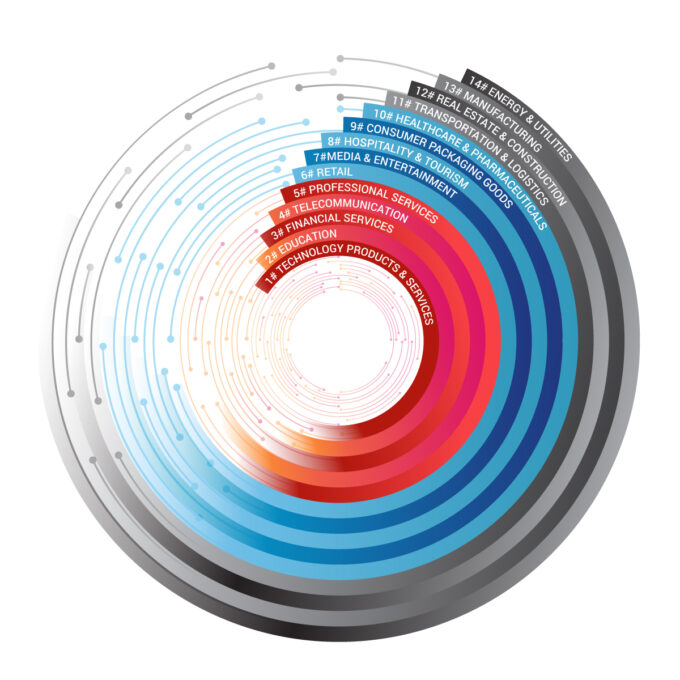None of which is to say that digital disruption will not continue at pace in other sectors. Media and entertainment, for example, was seen as the sector most vulnerable to disruption in 2021, but has fallen to seventh place in 2023, as industry consolidation and transformation reach a more mature phase.
In the retail sector, the massive shift to ecommerce prompted by the pandemic has naturally slowed as restrictions have been lifted and consumer patterns have normalized. This is reflected in its slipping to sixth place from second in 2021. Nevertheless, as in the media sector, transformation is ongoing. Could VR make it easier for shoppers to buy clothes remotely, for example? How do data and analytics tools enable retailers to attract more traffic – and to convert those browsers into buyers?
Digital disruption everywhere, all at once
It is important to emphasize that, even in sectors where the research suggests businesses are more insulated from the digital storm, disruption is still taking place.
In energy and utilities, for example – which is bottom-ranked for the third time in the past four studies – climate-change imperative underpins the disruptive imperative. The pace of change may be slower, particularly in areas of the industry that rely on significant physical assets, but digital transformation in areas such as energy management has become an important theme.
Similarly, in manufacturing (another consistently low-ranked sector), disruption is under way in a host of areas. The advance of the internet of things (IoT), for example, is prompting manufacturers to rethink their business models. Customers increasingly want to move from capex to opex models, requiring manufacturers to lease them always-connected assets that are perpetually maintained and regularly renewed.
In real estate, meanwhile – third from bottom in the Digital Vortex 2023 study, the same position as it occupied in 2021 – digital disruption is being felt everywhere from smart buildings and digital twins to the use of blockchain in property transactions. As with the other sectors at the bottom end of this latest study, digital transformation is both ongoing and widespread.
Indeed, the takeaway from Digital Vortex 2023 is not that some sectors are prone to digital disruption while others are not. While some sectors are inevitably showing a steeper disruption curve than others at any given moment, every sector in this study is experiencing a shift. In each case, digital technologies are changing the value chain – and in a meaningful way.








